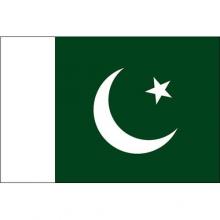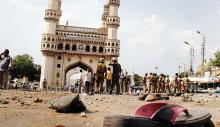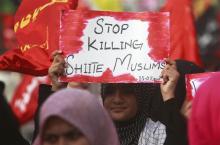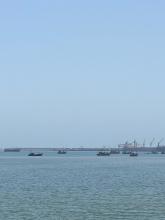-

After four decades of a political standoff, the recent thaw in Sino-Indian relations has seen a renewal of dialogue and the start of substantive negotiations between the two countries. But negotiating with the Chinese—the inscrutable Orientals, as the Europeans called them—requires a very different set of sensitivities and skills from what we Indians are accustomed to. Our negotiating skills have largely been limited to Americans, Europeans, and West Asians, who are distinctly more transparent, open, and non-contextual in their negotiations than the Chinese or the traditional Japanese.
-

Like in any nuclear weapon state, multiple vulnerabilities exist in a nuclear weapons complex. In the case of Pakistan, it is possible that groups or individuals may violate security rules for a variety of reasons, including profit-making, settling a vendetta, or religious or ideological motives. Rogue elements may try to gain control over sensitive items for their own use or transfer them to another state or non-state actors for financial or ideological reasons. A special concern is that Pakistan, as its history suggests, may suffer another military coup at some point in time.
-

The Cold War mindset is difficult to fade away. With the announcement of the design and building of the nuclear energy centre in Myanmar by Russia’s Federal Atomic Energy Agency, the US has raised concerns about the peaceful nature of Myanmar’s nuclear energy programme. The proposed 10-megawatt light water reactor has attracted international attention in Myanmar. The negotiation for acquiring nuclear technology between the Russian Agency and Myanmar was shelved since 2003 due to specific payment problems.
-

May 18 (Friday) terror blast at Mecca Mosque in Hyderabad reveals the persistent challenge of terrorist groups to foment violence and communal acrimony in India. The explosion, which took nine lives and injured more than 50 people, occurred during Friday prayers inside the historical Mecca Mosque located near the well-known Charminar, a major landmark of the City that attracts several tourists from India and abroad. The police also recovered three more bombs in the mosque and defused it.
-

‘Estranged democracies’ is how Dennis Kux once characterised relations between the US and India. For much of India’s independent history, Kux’s characterisation hit the nail on the head. A norm of suspicion about the Americans seemed to have institutionalised itself within India’s strategic culture, and there were good reasons for this.
-

With so many ups and downs in the past, New Delhi has pinned high hopes on the military-backed Caretaker Government in neighbouring Bangladesh for better and more progressive ties. Though it seems strange for India to give an approving nod to a military-powered regime, it strongly believes that the current government may continue for longer and for the better. It seems the campaign for democracy in Southern Asia is not on India's priority list for now.
-

After five long years of advent of suicide terrorism in Pakistan (a recent estimate indicated about around 30 suicide bombing incidents with well above 160 fatalities have taken place since 2002), suddenly the erstwhile supporters/believers (somehow tacitly) of suicide (Fidayeen) attacks voiced against this most lethal terror tactic. Although, the use of suicide bombings in Pakistan never caused a public backlash in general, some liberal and progressive Muslims do oppose the tactics irrespective of their targets, but their voice never posed a deterrent.
-

The Chemical Weapons Convention which marked its tenth anniversary on April 29 bans the development, production, acquisition and use of chemical agents (e.g. Vesicants and nerve agents) and requires the destruction of existing stockpiles.
-
Sri Lanka's Tamil Tiger rebels launch air strikes against government installations, boosting their morale after last year's losses and taking the renewed conflict to a dangerous new level.
In an apparent change of war tactics, Sri Lanka's Tamil militant group, the Liberation Tigers of Tamil Eelam (LTTE), is now resorting to aerial attacks against government targets, a novel shift in the conflict that has ravaged the Indian Ocean island nation for three decades.
-

All over the world, environmentalists and green activists are jubilant. Even the renowned international environmental organization Greenpeace is thrilled for its nomenclature when climate change has officially ‘securitized’ in the United Nations. But, traditional war theorists or security experts have kept an eerie silence over the historical development of the re-emergence of the ‘environmental security’ concept. Beyond its tradition, on April 17, the UN Security Council (UNSC) debated the impacts of climate change and its linkages to international security for the first time in history.
Paxton ported to drupal by DropThemes.in